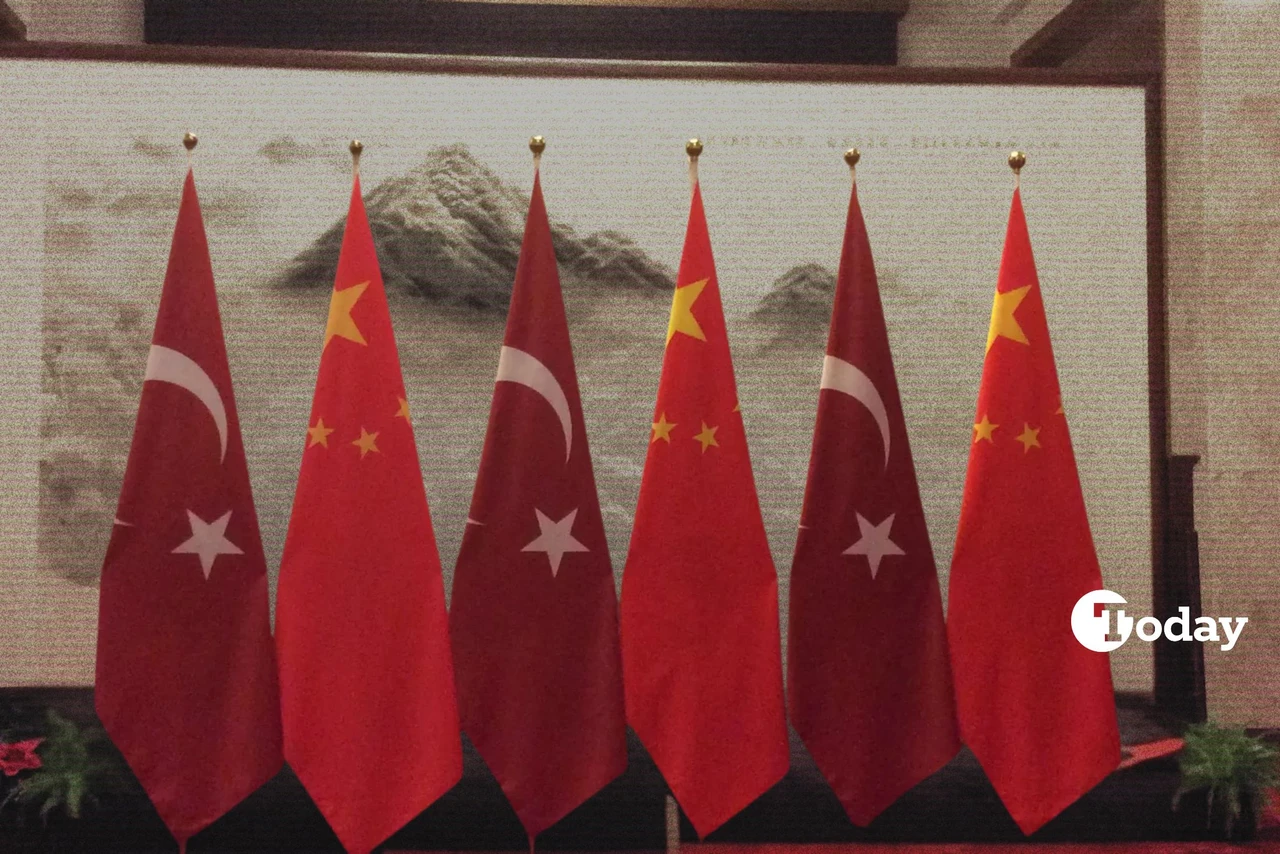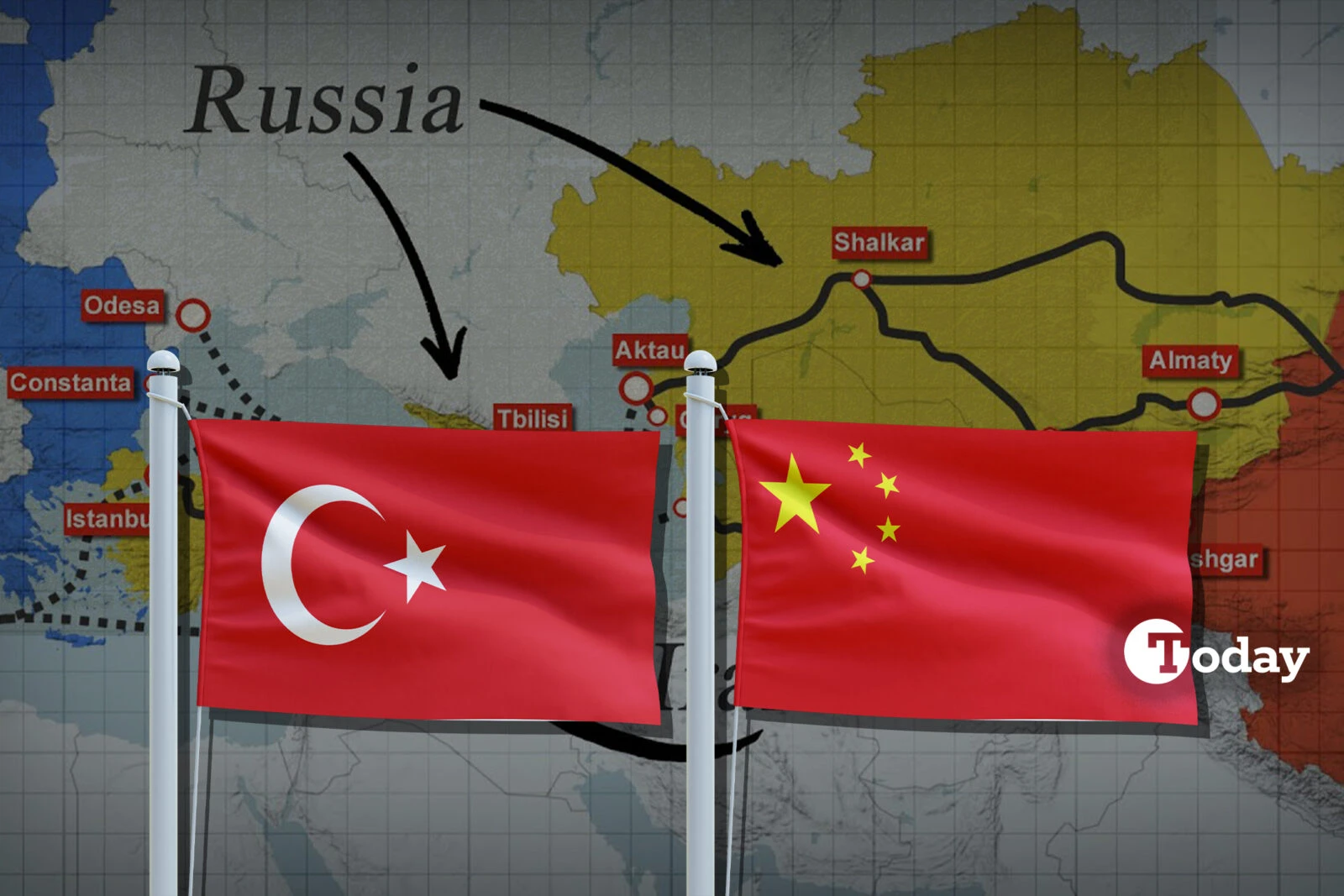Türkiye’s China trade deficit woes
 Türkiye's $45 billion trade deficit with China highlights a growing economic dependency, prompting calls for export diversification and strategic investments to restore balance. (Collage prepared by Türkiye Today team)
Türkiye's $45 billion trade deficit with China highlights a growing economic dependency, prompting calls for export diversification and strategic investments to restore balance. (Collage prepared by Türkiye Today team)
The latest foreign trade data released by the Turkish Statistical Institute (TUIK) and the Ministry of Trade for the January-July period has highlighted a significant trade imbalance between Türkiye and China. The numbers paint a stark picture of Türkiye’s growing dependency on Chinese imports, raising concerns about the sustainability of this trade relationship.
In 2023, Türkiye exported goods worth $3.3 billion to China while importing a staggering $45 billion worth of products from the country. The Dragon now accounts for over 13% of Türkiye’s total imports, solidifying its position as Türkiye’s largest import partner.
The imbalance is not just a matter of numbers; it reflects deeper economic dependencies. While imports from China are predominantly intermediate goods, the scale of reliance is unparalleled when compared to other trade partners. This dynamic not only affects Türkiye’s trade balance but also influences domestic production costs and market competitiveness.
Ahmet Faruk Isik, a research fellow at the ChinaMed Project, Torino World Affairs Institute (TWAI), emphasizes the need for Türkiye to diversify its exports to China and highlights the significance of welcoming increased investments from Chinese companies, particularly in high value-added sectors as the fastest way to address the situation.
The expanding trade deficit
A look at the trade deficit figures over the past two decades underscores the severity of the situation. The deficit, which stood at just $0.7 billion in 2002, ballooned to $38 billion by 2022. In 2010, the deficit was $14.9 billion, and it reached $22.6 billion in 2015. Despite a brief reduction to $20 billion in 2020, the gap widened again since, doubling the trade and so the deficit.
The trend is also a reminder of Türkiye’s limited success in diversifying its export markets. While the red wave remains a major import source, it does not feature among Türkiye’s top 20 export destinations. This situation limits Türkiye’s bargaining power and economic resilience.
Alarming trends in early 2025
The trade imbalance has shown no signs of slowing down in 2025. According to January’s data, China sold over $4 billion worth of goods to Türkiye, a sharp increase from $2.9 billion in the same month last year, representing a dramatic 40.9% rise. Should this pace continue, Türkiye’s total imports from China could exceed $50 billion by the end of 2025 according to Nurettin Akcay, a China affairs expert from Türkiye.
The rapid increase in imports is particularly concerning when placed in a broader economic context. While Turkish manufacturers rely on Chinese goods as raw materials and components, the lack of reciprocal export growth points to a missed opportunity for Türkiye to capitalize on China’s vast market.
Additionally, the seasonal trends suggest that the trade deficit might widen further in the summer months when trade volumes typically rise. Without strategic intervention, Türkiye could find itself more deeply entangled in an unbalanced economic relationship with China.
My problem, the other’s problem
Türkiye is not alone in struggling with a substantial trade deficit with China. During Chinese President Xi Jinping’s visit to Europe last spring, trade imbalances were a central topic of discussion. European Commission President Ursula von der Leyen emphasized the need for “fair trade,” criticizing Beijing’s practices for fostering unfair competition.
Von der Leyen previously warned that the current trade imbalance could lead to deindustrialization in Europe, describing this scenario as “unacceptable.”
French President Emmanuel Macron echoed similar sentiments, stressing that Europe’s future hinges on its ability to develop a balanced relationship with China. He called for a revision of the existing trade dynamics to ensure sustainability and fairness, highlighting that the current trade setup might not support Europe’s long-term economic stability.

Path to the balance
Türkiye’s dependency on Chinese intermediate goods is a complex issue. While importing these products aids Turkish manufacturers in processing and re-exporting goods, the overreliance on Chinese imports poses risks. The fact that many Western brands also source products from China further exacerbates the trade deficit.
One potential solution lies in attracting Chinese investments to Türkiye. Establishing production facilities within Türkiye could help reduce the import burden and support domestic industries. By creating more localized supply chains, Türkiye could mitigate some of the negative impacts of the trade imbalance.
In talks to Türkiye Today, Isik, China Affairs Consultant Foreign Economic Relations Board of Türkiye, points out that China’s total investments in Türkiye have exceeded $7 billion, with over 1,200 Chinese companies operating in the country. He believes that boosting Chinese investments, especially from industry giants like BYD, which recently committed to a $1 billion investment, could pave the way for more balanced trade relations, while contributing Türkiye’s know-how efforts.
China is already Türkiye’s largest trading partner in Asia and the second largest globally. With total Chinese investments in Türkiye exceeding $7 billion and over 1,200 Chinese companies operating in the country, there is potential for deepening this economic relationship. Leveraging this existing presence could be a strategic move for Türkiye.
Approximately 100 Turkish companies also operate profitably in China, indicating a foundation upon which trade could be more balanced. As of 2024, the trade volume between the two countries reached $48.4 billion, but the relationship remains heavily skewed in favor of Chinese imports. Expanding Türkiye’s market share in China would not only balance trade figures but also support domestic economic growth.
Before it becomes unpreventable
While economic integration with China offers opportunities, achieving a balanced trade relationship will require strategic policy measures, investment incentives, and a focus on boosting Turkish exports, especially in a time of need for new market opportunuties for Turkish exporters.
Amid shifting global trade dynamics of Trump era, Türkiye must also remain vigilant about the potential fallout from global trade wars. By closely monitoring outcomes and strategically positioning itself, the bosphorus could not only avoid negative impacts but also seize emerging opportunities to strengthen its trade foothold.



